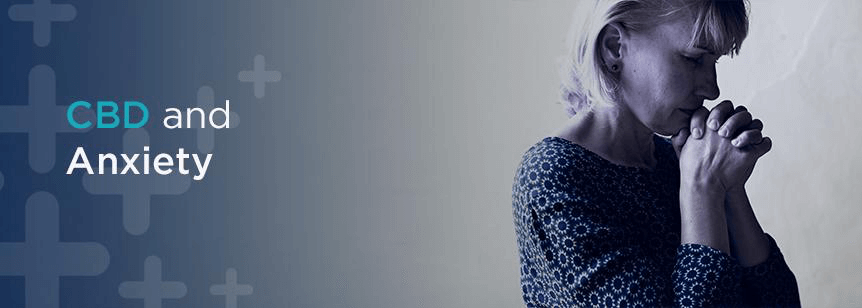
Interest in CBD or cannabidiol, available in oils, gummies, drops, and even mints, has exploded recently. The chemical has been added to a huge range of products and marketed heavily as a supplement to cure everything from insomnia to arthritis.
Click here for the full infographic
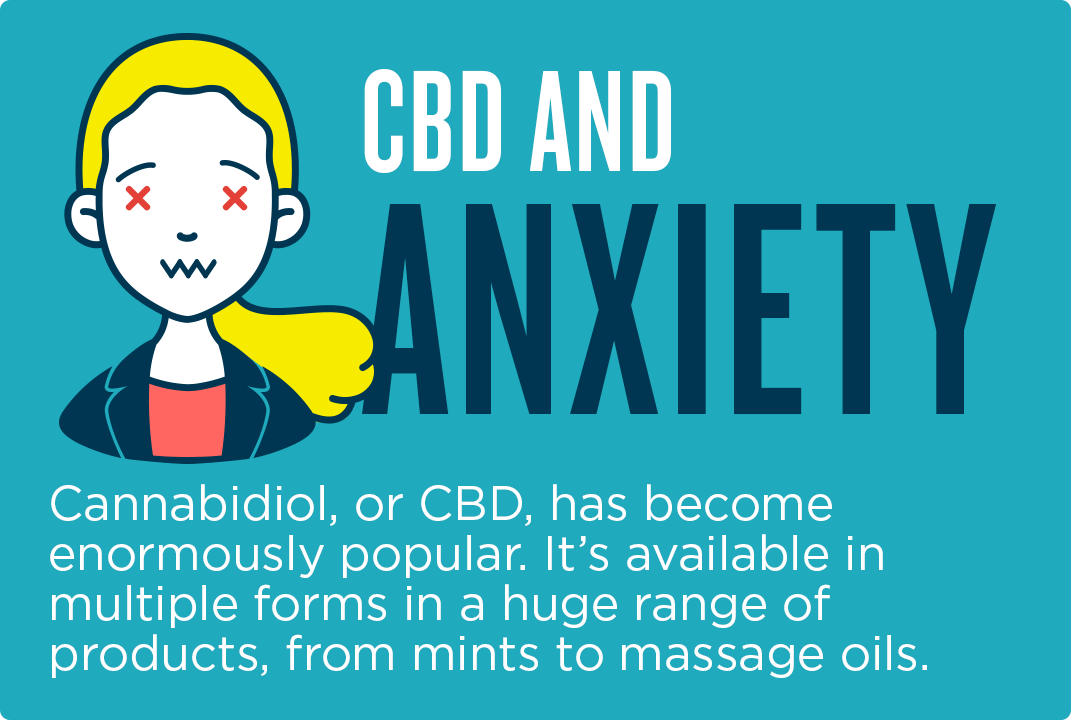
You can find it in supplements, beauty products, massage oils, make-up, and also in foods such as snacks, seltzer water, and even coffee.
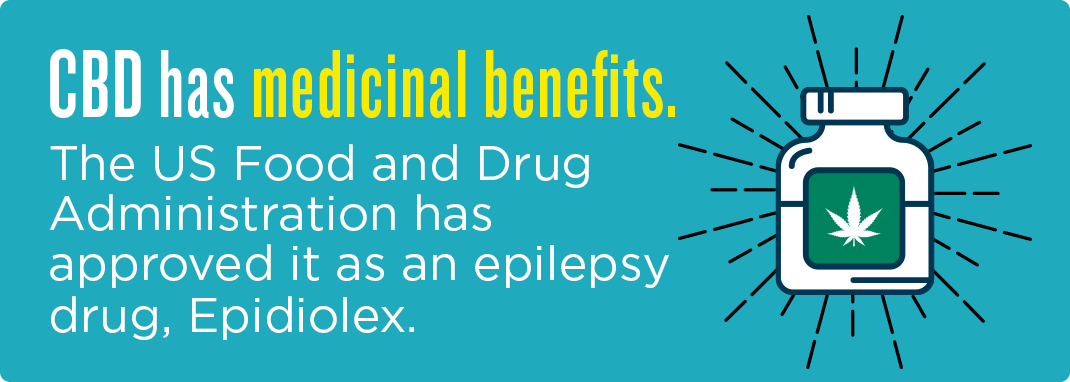
Despite its sudden popularity as an alternative health supplement or trendy food additive, CBD does have purported medicinal benefits and has in fact been approved by the U.S. Food and Drug Administration as a treatment for epilepsy, in the form of the drug Epidiolex.
But can it help those who suffer from anxiety?
Traditionally, cannabis has been considered a controversial treatment for anxiety symptoms, with some people claiming it helps to relax and destress them and others saying it heightens their paranoia and feelings of being out of control.
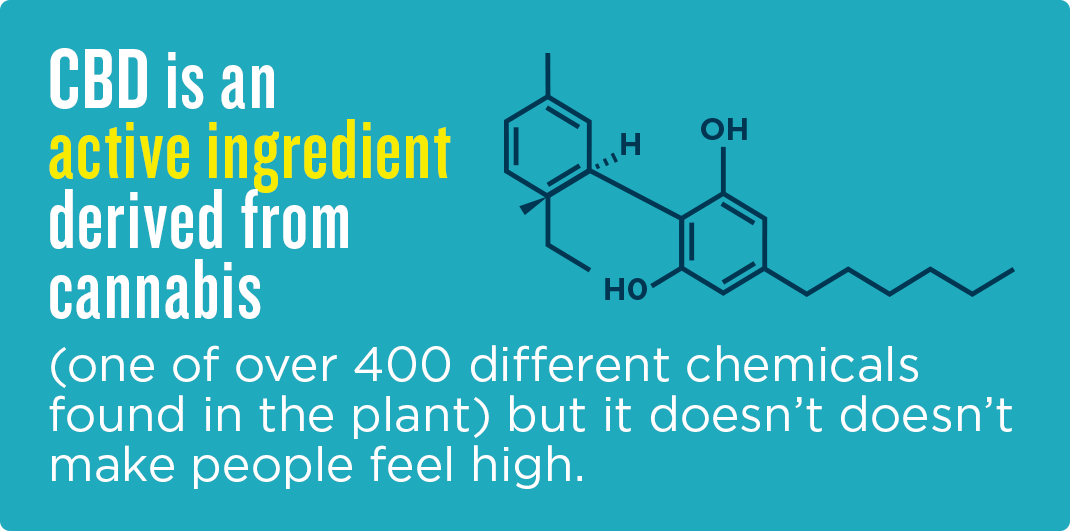
CBD is an active ingredient derived from cannabis (one of over 400 different chemicals found in the plant) but it doesn’t doesn’t make people feel high.
Arash Taghvai, BSc. M.D is the Manager of Clinical Affairs at Apollo Cannabis Clinics in Toronto and works to support patients who are looking to improve their quality of life with medical cannabis. He believes that CBD can be very effective in helping patients with many different symptoms, “CBD can absolutely be used medicinally. It is where we start most patients when it comes to medical cannabis. It can help a wide range of conditions, from mental health to chronic pain.”
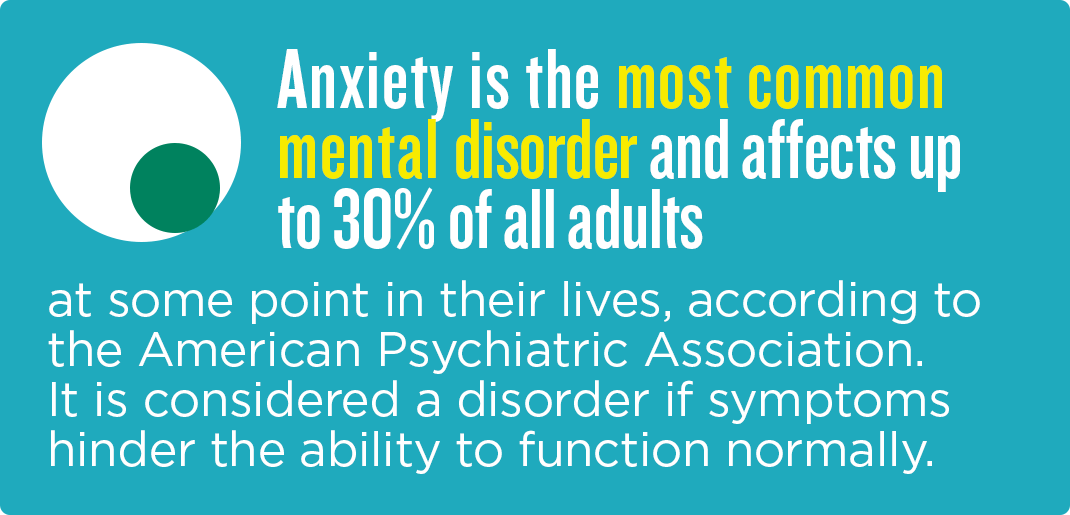
As the general public has become more comfortable discussing mental health and the stigma of mental illness is broken down, it’s increasingly common to hear people complain about symptoms of anxiety.
However, simply feeling nervous, uneasy or unsure about an unfamiliar situation or event is not the same as suffering from chronic anxiety.
Stress and nervousness are normal responses to certain scenarios. For example, if you are about to give a big speech to a large crowd it is normal and expected for you to perhaps feel hot or have clammy hands or maybe even an upset stomach.
If you are taking an important exam, you might worry that you haven’t studied enough and feel impatient and irritable beforehand.
Before a job interview, you might find it hard to sit still or concentrate.
These symptoms are all proportional to the event and can be described as normal, occasional bouts of anxiety or nervousness.
It would be considered atypical to have the same sort of symptoms when just sitting in your own home, or if they were heightened and included intense feelings of panic, fear or terror, which are the markers of an anxiety disorder.
The American Psychiatric Association reports that anxiety is the most common form of mental disorder and affects up to 30% of all adults at some point in their lives. They describe true anxiety as feelings that are:
Dr. Taghvai describes the most common feelings in a person experiencing anxiety, “Symptoms include, but are not limited to, increased heart rate, increased respiratory rate, feelings of impending doom–an overwhelming feeling that things are going to go wrong, the inability to concentrate. In general, people aren’t themselves when they’re anxious.”
Thankfully, anxiety is also highly treatable.
Common treatments available for the symptoms of anxiety include traditional talk therapy and, increasingly, cognitive behavior therapy. This involves empowering the patient to confront and interrupt their thought patterns and find ways around their current behaviors and triggers.
Drug treatments can include SNRIs (serotonin and norepinephrine reuptake inhibitors,) benzodiazepines and antidepressants.
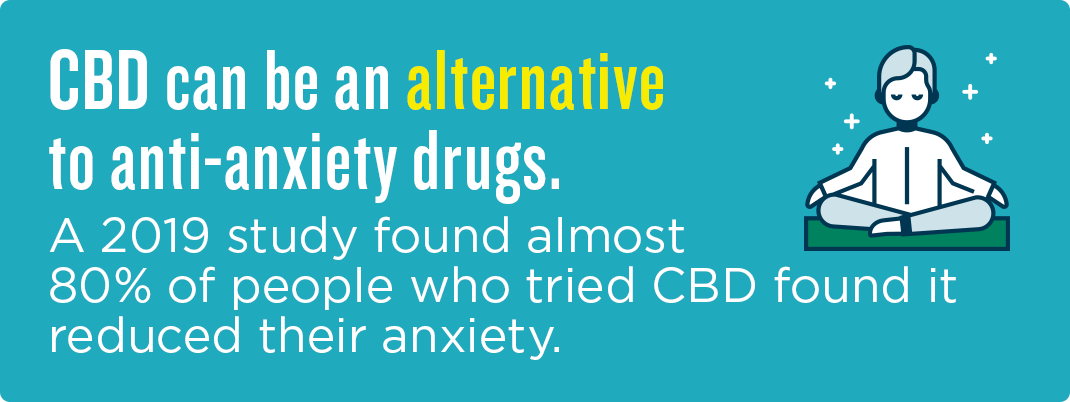
For those looking for an alternative to drug therapy, can CBD work to ease the symptoms of anxiety?
A 2019 study in The Permanente Journal suggests that perhaps it can. Tests were carried out to determine if CBD helped to ease anxiety and promote sleep and the results were promising. “Anxiety scores decreased in 79.2% (of patients) and remained decreased during the study duration. Cannabidiol may hold benefit for anxiety-related disorders.”
Dr. Taghvai says that CBD can help patients with anxiety by “putting the body back towards homeostasis. It can help with relaxation and calming of physical symptoms associated with anxiety. For example, patients report that they know the CBD is working when they no longer wake up with a knot in their stomach or have a reduction in rumination, or don’t feel as nervous in a situation that once provoked their symptoms.”
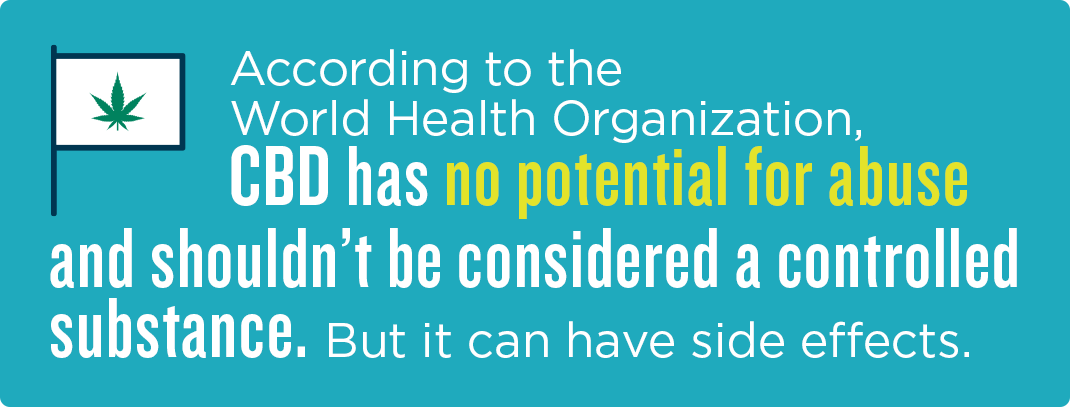
So, should you try CBD for symptoms of anxiety? The World Health Organization states that cannabidiol doesn’t have abuse potential and shouldn’t be classified as a controlled substance. But that doesn’t mean it’s entirely harmless. Some side effects have been reported, including stomach upset or irritability.
If purchased as an unregulated supplement it can be difficult to know the source of the CBD and whether the stated number of active ingredients are accurate. That’s just one reason why Dr. Taghvai advises anyone considering using CBD to seek the advice of a health professional and receive a prescription to ensure proper monitoring.
CBD oil derived from hemp is legal in all 50 states. However, to find out if your state permits the sale of CBD from the marijuana plant you will need to check your individual state laws.
More research is needed to prove conclusively that CBD is an effective and safe treatment for anxiety, but initial reports and patient feedback have been very positive.
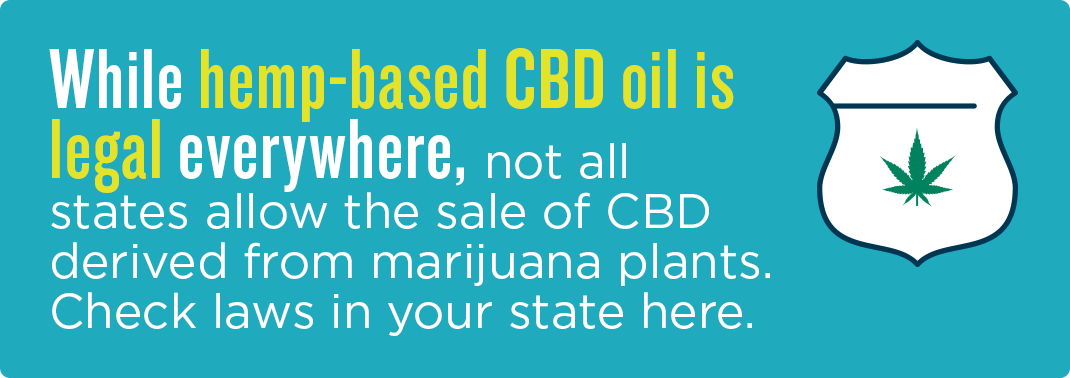
Fiona Tapp is an experienced health and wellness writer with clippings at The Boston Globe, SELF, The Atlantic, Prevention, Reader’s Digest, many more.
You can view her work at www.fionatapp.com or connect on LinkedIn- https://www.linkedin.com/in/fionatapp/
No Information on MarijuanaDoctors.Com should be used to diagnose, treat, prevent or cure any disease or condition. You can view our Full Disclaimer here.